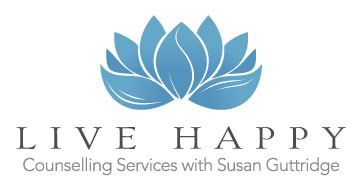|
Affect regulation refers to the ability to shift out of uncomfortable and overpowering emotional states to one that is more settled and balanced - calmer. It isn't about not feeling emotion - because emotion gives richness to our lives and each emotion brings with it valuable messages about our inner experiences and responses to external experiences. When we talk about learning emotion regulation, we are referring to developing the tools (or strategies) and resources necessary to recognize, observe, modulate, and cope with affects you may be experiencing (affect is another word for emotion). In developing these tools and skills, you will be better able to cope with disturbing emotions as they arise (such as grief, anxiety, anger, fear, frustration, etc.). Developing the ability to regulate affect begins with learning to identify emotional sensations within your body. These after often referred to as the "felt sense" of emotion. Learning to be present with the felt sense of emotion can be challenging for some people. In fact, I frequently hear people say that it's easier to label an emotion than it is to be present with emotion in the body. It may feel safer to label emotion from a distance; almost being objective with it; whereas tracking and describing how we feel emotion in our body can be difficult. It can even cause us to feel vulnerable. In these instances, it’s helpful to do do the work with a Counsellor in a safe and supportive environment. There are many strategies that fall into the category of emotion regulation, such as breath training, distraction, reappraisal, and containment strategies. Containment strategies are useful techniques to regulate affect because they can be effectively used to control intrusive trauma memories and images (flashbacks), and disturbing physiological sensations. These overwhelming memories, images, sensations, feelings, or thoughts can sometimes lead to harmful behaviour, making it extremely difficult for you to focus on healing. Learning effective containment skills can empower you and reassure you during difficult times. The term containment is not used here to refer to “stuffing” or ignoring your experiencing. Just the opposite, in fact. It’s about acknowledging the incredible power the distressing memories have, and creating the safe internal place from which to work through them. In her book “Healing from Trauma”, Jasmine Lee Cori describes it as “to contain something is to hold it, to create a place for it, in some ways to protect it”. “With containment… we learn to discriminate how much (emotion) we an handle at any given moment without overload. We understand that the point is to keep the feelings from getting so intense that they burn us. We learn to contain a feeling so that it doesn’t run roughshod over us but instead is given a place and listened to” — Jasmine Lee Cori Because every person is unique, there may be some affect regulation strategies that work well for you and others that do not. I'll be sharing some affect regulation strategies throughout this blog: try the strategies that sound interesting to you, approaching them with an open mind and a curious attitude. Try each strategy you select over a couple of days, and write in your journal what the strategy was like for you. If you'd like to learn more, check out the book Calm in the Storm: A Collection of Emotion Regulation Strategies You Can Use Right Now to Shift Out of Anxiety. Resources: Cori, J. L. (2008). Healing from Trauma, A Survivor’s Guide to Understanding your Symptoms and Reclaiming your Life. Haskell, L. (2003). First Stage Trauma Treatment: A guide for mental health professionals working with women. Article originally posted 2014/02/20 posted by Susan Guttridge (susanguttridge.wordpress.com)
0 Comments
Your comment will be posted after it is approved.
Leave a Reply. |
AuthorSusan Guttridge is a trauma-informed Master level Counsellor with the clinical designation of Canadian Certified Counsellor (CCPA). She has 20+ years experience providing individual and group therapy. Archives
January 2024
Categories
All
|


 RSS Feed
RSS Feed